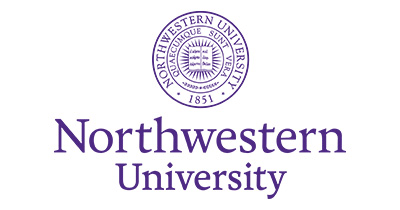SEFI ATTA was the Visiting Writer in Residence at the Center for the Writing Arts at Northwestern during the fall quarter of 2008. She was born in Nigeria, educated there and in England, and for some time has lived in Mississippi. This is her post:
In September 2009, I was a guest writer at the Garden City Literary Festival in Nigeria. It was held in Port Harcourt, the capital city of Rivers State and commercial center of the oil-rich delta region. Port Harcourt is known as the Garden City, but in recent years has become the kidnap capital of Nigeria.
I wasn’t worried about traveling to Port Harcourt. I had read reports about oil rig workers and oil company executives who had been kidnapped by militia groups, but they were expatriates. Just before I traveled, a gang had abducted a popular Nollywood actor and held him for ransom, but that was in a neighboring state. As far as I was concerned, no one in Port Harcourt would recognize me, except the festival director, Koko Kalango, and other employees of the Rainbow Book Club who had seen my photograph in their brochure.
I arrived in Port Harcourt in the early evening of the 24th to find my face and name on billboards advertising the festival, but I still wasn’t concerned about being kidnapped. More renowned writers like J. P. Clark and Ngugi wa Thiong’o were attending the festival, and the only person who had bothered to waylay me was a Drug Law Enforcement agent at the airport. He was just annoyed that he couldn’t intimidate me, and to scare him, I told him I was a guest of the state governor, which was true. I was meant to be at a command performance of J. P. Clark’s play, The Wives Revolt, at the state government house that evening, and I was running late. Koko Kalango, who was already there, had sent a driver and escort to meet me at the airport. The traffic to the city center delayed us further.
My hotel, Le Meridien, was fairly posh by international standards. I got ready and the driver took me to the government house, where I met up with Koko Kalango. I was in time for dinner, but I’d missed the play. I reminded J. P. Clark that I’d met him once before as a child, through my late father, then I had an Obama moment when I met Governor Amaechi. He was my age, but I’d always imagined Nigerian politicians as old men. Governor Amaechi gave a welcome speech during which he mentioned that he had studied Ngugi’s books as a student.
This was the second year of the Garden City Literary Festival, a collaboration between Rivers State Government and the Rainbow Book Club. For the next couple of days, drivers shuttled me and other guests from Le Meridien to Presidential Hotel, where the festival was located. Because of the risk of abductions, we were always accompanied by armed guards, which didn’t actually make me feel safer, but I remained unconcerned. There was a press conference to attend, workshops, open mic readings, interactive sessions and a prize-giving ceremony for school children.
Unlike the students I’d encountered at Northwestern University, the students who attended my fiction workshop at the festival did not write about personal relationships. Their stories were topical. I had stories about student cults and local abductions. Some had typed their stories at home and others had gone to Internet cafes. One asked if it was fair that I used the same standards I used overseas to critique their work and I said yes, as I did not expect less from them. They were on par with American students, but none of them was writing for fun; they all wanted to be published, eventually.
Several Nigerian publishers were at the Garden City Literary Festival and I often hear that there is no money in publishing in Nigeria. There is definitely not enough investment in the publishing industry and the market for literary fiction in particular is small, and so is discretionary income. Plus, the average Nigerian would rather buy a Nollywood DVD than a book by a Nigerian writer. But Nigerian publishers can and do get funding to promote books.
As an accountant turned writer, I find that the lack of accountability surrounding fundraising practices in Nigeria is cause for concern. Private, for-profit publishers don’t seem to have any requirements to declare how much funding they raise in a writer’s name or how the funds are spent. If a writer doesn’t have name recognition, or if (as I have recently discovered) a writer is unwilling to allow a publisher to solicit funds in this ambiguous manner, there is little incentive for a publisher to promote the writer’s book, so the experience can be rather like having your book held for ransom.

